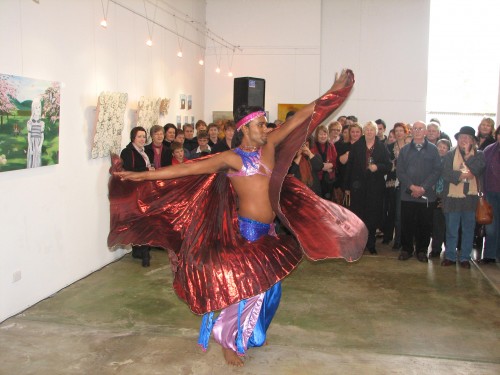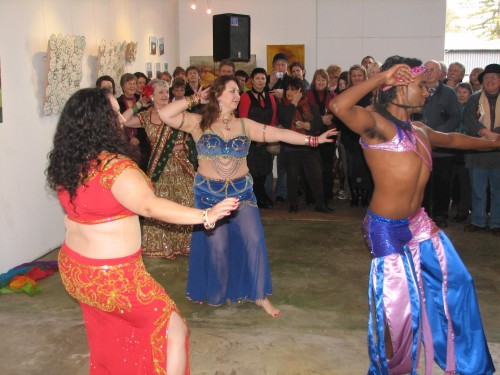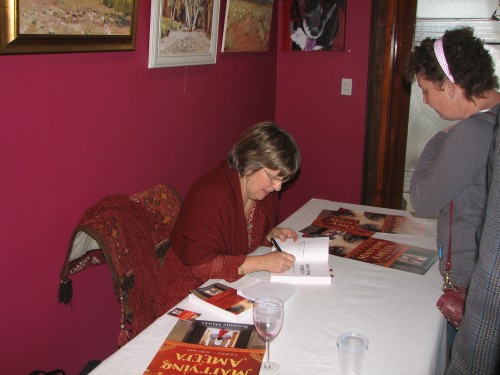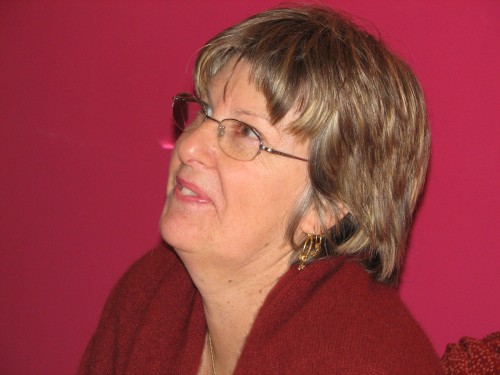Going nowhere fast – the frustrations of writing
My writing is going nowhere fast.
So fast, my current WIP (work in progress) has come to a standstill. Sigh.
I’ve had some frustrating times lately with family and community responsibilities interrupting my writing time. It happens every now and then and I know I should just accept these times and not get too frustrated with them.
Going nowhere fast
Trouble is, I’ve allowed the recent events to grind my WIP to a complete halt. It’s going nowhere fast. I haven’t looked at it for nearly a fortnight. One thing I’ve found in recent years is that momentum can often be a very great friend. Once I get on a roll with a particular writing project – be it a novel, short story, article, whatever – the momentum created tends to be self generating. Momentum creates more momentum and I get to the point where it is like an unstoppable train, steaming along seemingly under its own power, carrying me along for one exhilarating ride. When that happens I can be very productive, sometimes writing 3000+ words in a day. About 700 words is my normal average.
Slow and steady wins the race
Sadly, the opposite is also true. When I don’t have any momentum because of illness, distractions, family or other responsibilities etc, getting up a head of steam to get moving again takes so much effort. Starting all over almost seems too hard and I can easily give up. The secret is to not stop. It is easier to keep a train moving slowly than to start from a stopped position. It is easier to keep going with a story every day – even if it is only a few words or for twenty minutes or so – than to leave it completely for weeks and then have to start all over again.
I should stop this now and get back to that novel.
It’s not going to finish itself.
Good writing.
A frustrating week of writing
I just had a very frustrating week of writing.
In fact, much of it has been devoted to non writing activities. First, I’ve had a series of meetings to attend and these always cut into my writing time.
Second, I’ve been busy tidying up the mess in our driveway. We had a massive storm here just over a week ago and a large 40 year old gum tree came down in our driveway. I’ve been busy chain sawing up the wood. I guess we’ll have plenty of firewood in the coming few years.
Third, I was discouraged by my critiquing group at a seminar last week and have hit a brick wall as a result. I was very excited about rewriting my novel in the first person. It seemed to be going so well, yet everyone was so critical and told me that it just wasn’t working.
Ouch.
Discouragement hit me big time. I’ve done no more on it for the last week. I sometimes feel like giving up.
Can any of my readers offer me any encouragement, or clues on how to get going again?
In the meantime – a few photos of the mess in my driveway.
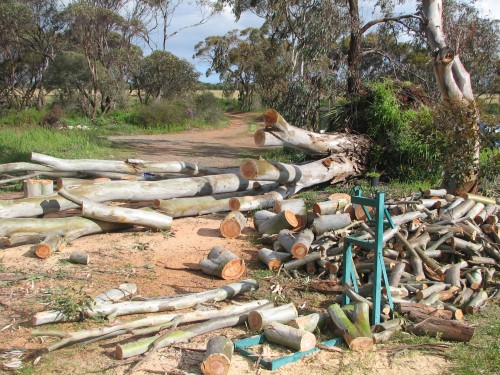
Fallen tree in our driveway
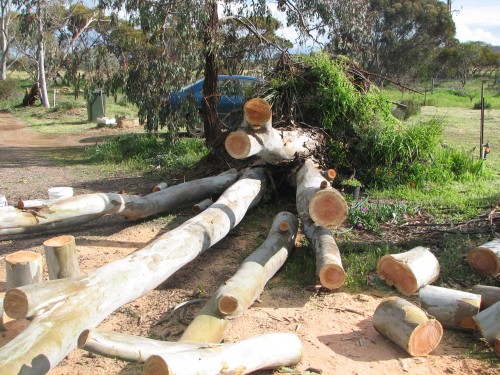
Fallen tree in our driveway
Review: Searching for the Secret River

Cover - Searching for the secret river
I have recently read Kate Grenville‘s historical novel The Secret River. You can read my review here.
Straight after finishing the novel I went on to read her follow up book Searching for the Secret River.
In this second book she goes into great detail about how she researched the novel. The story is based upon the life of her great-great-great grandfather, but she took the facts gleaned from family history and extensive research both in London and in Sydney over a five year period and transformed it into fiction. She has used fact as a broad brush in the hands of her imagination and the finished novel is brilliant. It gives the reader a much clearer view of life in the early years of settlement in the young Australian colony.
Searching for the Secret River is a fascinating expose on the thinking processes of one of our leading authors. Grenville takes us on a journey from the first inklings of an idea for a book through to the finished product. At first she was planning a non fiction book but she struck so many obstacles along the way that she changed tack completely, fictionalising it and letting her imagination run. I’m pleased she did.
While she does address some of the issues faced by all writers of fiction, this is not a handbook on writing. Sure, she does explain why she changed from first to third person, but generally it was the research that so intrigued her that she recounts in the first part of the book. Throughout she grapples with her attitudes, and those of the settlers, towards the Aboriginal people who would have lived in the Sydney area during the time in which she sets her novel. She was confronted by some very unsavoury discoveries. The reader of the novel is likewise confronted by some of the events of those days. Australian history is not always the clean, lovely accounts I read as a student many years ago.
While she has drawn from actual historical records, her novel is not another version of history. ‘I was shameless in rifling through research for anything I could use,’ she writes, ‘wrenching it out of its place and adapting it for my own purposes… What I was writing wasn’t real, but it was as true as I could make it.‘ (Grenville p. 210) She has been criticised for her (alleged) misuse of history. I think she has achieved what most other writers struggle with – she has made history come alive for the reader.
Reference:
- Grenville, K, 2007, Searching for the Secret River. WF Howes, Leicester.
Book review: The Secret River by Kate Grenville

The Secret River
I’ve recently read Kate Grenville‘s novel The Secret River on the recommendation of a friend. I can’t recall if I’ve ever read any other works by this prominent Australian author, but will certainly be looking at her other books in the future.
The story begins in London and follows the story of William Thornhill, a boatman on the Thames. He is involved in a misadventure which lands him in jail and sentenced to hang. Fortunately his wife’s family has connections, and his sentence is commuted to transportation to Australia as a convict ‘for the term of his natural life.’ His wife and young family are allowed to travel on the same convict ship, but as free settlers in the new penal colony at Sydney.
The story grabs the reader as Thornhill and his family struggle to survive. After some years he gains his freedom. Through hard work and many setbacks they eventually establish a farm they think of as their own. The indigenous population see things much differently and the inevitable conflict arises. This is a dark and often tragic part of recent Australian history, the ramifications of which we are still attempting to work through.
Grenville has drawn some memorable characters, especially in Thornhill, his wife Sal and her longing to some day return home to London, and some of the minor characters living near them. Their daily endeavours are well documented, set against the ever present strangeness of the unfamiliar landscape. Grenville also carefully plots the growing problem they had with the local Darug people who had lived here at one with the environment for millennia.
Interestingly, this story was inspired by the author’s family history. Her great-great-great grandfather was Solomon Wiseman after whom Wisemans Ferry, near modern Sydney, is named. While the novel is fiction, the author has drawn heavily upon historical records of the day, including those of her family. Thus we have in the novel a blurring of the line between historical fact and an author’s imagination as expressed in the fiction of the story.
This blurring resonates with what I am attempting to do with my own work in progress, a children’s novel set in Nepal which draws on actual historical events.
The Secret River is an important work by a highly acclaimed Australian author. It has rightly won many awards, including:
- Winner, Commonwealth Writers’ Prize 2006
- Winner, NSW Premier’s Literary award 2006
- Shortlisted, Man Booker Prize, 2006.
Reference:
Grenville, K 2005. The Secret River. Text, Melbourne.
Another book launch

Last Sunday my wife and I attended the second launch of Rosanne Hawke’s latest novel Marrying Ameera. This time the launch was in Rosanne’s home town of Kapunda in the lower north of South Australia. I wrote a review of this wonderful book here.
The launch was held in one of the local art galleries and the highlight of the afternoon for the crowd of over 200 family and friends was a 45 minute performance by Bollywood style dancer Reshman and four belly dancers. Another personal highlight was when one of the belly dancers invited me to join her! I’ve never done that before!
After the launch Rosanne was kept busy signing copies of her novel for admiring family and friends.
Author website:
- Rosanne Hawke: read more about Rosanne and her books on her web site.
